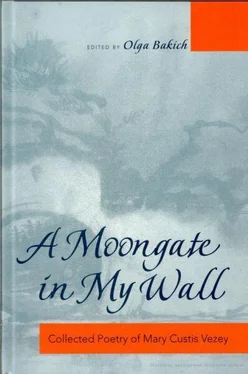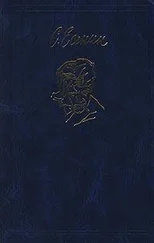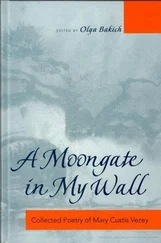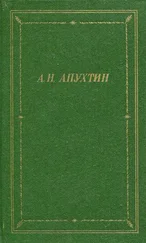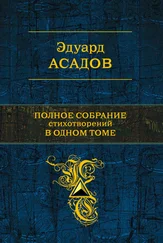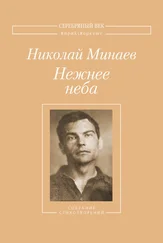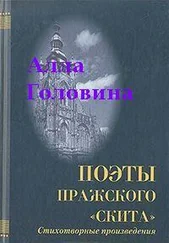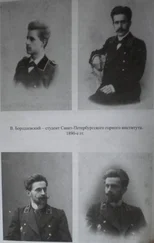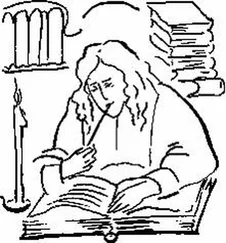Om mani pad me kum: a meditation mantra.
Lake Hanka is a lake in the maritime Far East, on the border of Russia and China.
Mai Mai Cheng: the Chinese city of Maimaicheng and the adjacent Russian city of Kiаikhtа were centres of Sino-Russian trade in the 18th and 19th centuries.
Maxwell Bodenheim, Мита and Myself (1918).
Abbie Huston Evans, Fuel of Crystal (1961); Vezey gave the poem the draft title «Ниша (Убежище) от взрыва, — Концерт».
Edna St. Vincent Millay, A Few Figs from Thistles (1921).
Edna St. Vincent Millay, Renascense and Other Poems (1917)
Edna St. Vincent Millay, A Fatal Interview (1931). Variants in the manuscript: in the eleventh line «или в нужде и мраке, что гнетет», and «в нужде без проблеска, в бессильи от забот»; in the twelfth line «твою любовь продам за облегченье»; in the thirteenth line «иль память о тебе — за хлеб и свет».
Carl Sandburg, Chicago Poems (1916).
R.L. Stevenson, Songs of Travel.
William Wordsworth, «Ode. Intimations of Immortality from Recollections of Early Childhood» (1897), part V and part of part IX.
Published in the journal Kharbinskie kommercheskie uchilishcha Kit. Vost. zhel. dor., no. 9, 1969, p. 31, with a misprint in the poet's surname.
With the notation «из сборника Время разлук (Нью-Йорк. 1971)».
No dates are available for Andreeva's life. This poem is from Rubezh, Harbin, no. 26, 1930; it received second prize in (he poetry competition organized by the Harbin literary circle of young poets «Churaevka» in the early 1930s
Translation of the second stanza. Variant in the last line: «the very longest way!»
Variant in the eighth line in the manuscript: "with a tawny brown hand, and does not dare."
Mary Vezey's "(??)" in the eighth line presumably indicates a search for a better word.
Blok supplemented the published poem with a note: «Эпитафия сочинена Полицианом и вырезана на могильной плите в Сполотском соборе по повелению Лаврентия Великолепного». Fra Filippo Lippi (са. 1406–1469) was an Italian painter of the early Renaissance.
Variant in the fifth line of the second stanza in the manuscript: «could have you come to visit me».
Андрей Блох (ок. 1896 — после 1930) Данные о поэте и переводчике крайне скудны: известно, что в начале 20-х годов он служил во французском Иностранном легионе; печатался во множестве периодических изданий (преимущественно выходивших в Латвии на русском языке между 1922 и 1930 годами). Автор двух поэтических сборников — «Стихотворения» (1927) и «Поэмы и стихи» (1929); оба изданы в Париже.
From the collection Жемчуга (1910; 1918).
From the collection Жемчуга (1910; 1918).
Unfinished translation from the collection Огненный столп (1921). Variant in the last line second stanza of part three in the manuscript: «that bays the moon when it is bright on high». Igdrazil: a gigantic ash-tree, which in ancient Spain symbolized the universe
From the collection Прикосновенье, Munich, 1959.
From the collection Навстречу небу, Frankfurt-on-Maine, 1952.
From the collection След жизни, Frankfurt-on-Maine, 1950.
From the collection Разрозненная тайна, Munich, 1965. Variant in the first line of the first stanza in the manuscript: «Oh, yes, it's good! Not in the present.»
From the collection Навстречу небу, Frankfurt-on-Maine, 1952.
From the collection След жизни, Frankfurt-on-Maine, 1950.
From the collection След жизни, Frankfurt-on-Maine, 1950.
First part of a poem from the collection ,Неуловимый спутник, Frankfurt-on-Maine, 1956
From the collection Прикосновенье, Munich, 1959 Variant in the first line of the last stanza: «Our world is sick. It whispers invocations».
From the collection Прикосновенье, Munich, 1959.
From the collection Навстречу небу, Frankfurt-on-Maine, 1952.
From the collection Прикосновенье, Munich, 1959.
From the collection Разрозненная тайна, Munich, 1965.
From the collection Навстречу небу, Frankfurt-on-Maine, 1952
Unfinished translation from the collection Вторая книга стихов, Paris, 1928.
Unfinished translation from the collection Вторая книга стихов, Paris, 1928.
Poem not found in a collection of this poet; presumably translated from a publication in a Russian emigre newspaper.
From the collection Южный дом, Munich, 1968.
A.N. Pleshcheev's poem was published with notation «С английского».
From the collection Закат, Paris, 1931.
From the collection Закат, Paris, 1931.
Poem not found in a collection of this poet, presumably translated from a publication in a Russian emigre newspaper.
From the collection Закат, Paris, 1931.
Second part of the poem from the collection Закат, Paris, 1931
From the collection Закат, Paris, 1931.
From the collection Закат, Paris, 1931.
From the collection Закат, Paris, 1931.
From the collection Наедине, Paris, 1938.
Читать дальше
